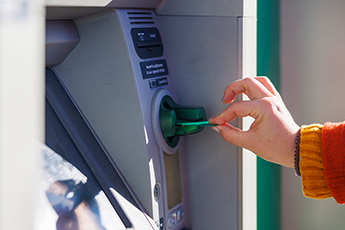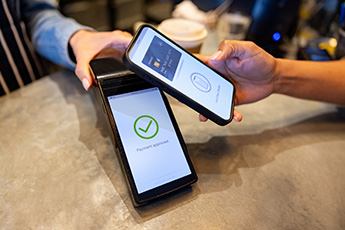As of this month, 3.5B people worldwide use smartphones. That equates to 44.85% of the global population. It is no wonder that technology advancements are demanded these days, which keeps financial institutions (FIs) busy investing in technology.
According to research conducted by AT&T and IDG, 81% of FIs have made technology changes at the corporate and/or branch level in recent years. Now, 5G will likely be a part of that technology upgrade. Telecommunications companies like AT&T and Verizon have already begun rolling out new high-speed 5G network technology in some parts of the country -- and this will affect financial institutions (FIs) and their customers.
The move to increasingly high-speed networks with 5G is a potent change. As Dominic Venturo, US Bank's Chief Innovation Officer says, this technology "is exponentially more powerful than 4G; it has such low latency and such high bandwidth that for a lot of applications, it will make a lot of sense to use 5G instead of WiFi." 5G networks have been deploying as early as April, in Minneapolis and Chicago, and more recently in Austin, Los Angeles, Nashville, Orlando, San Diego, and San Francisco. As the value of 5G performance is shown, more cities and areas are likely to follow.
Knowing that 5G is making its way to a neighborhood near you, what could 5G eventually do for your institution?
- Improve ATM connectivity. No longer are you confined by wires to connect ATMs, which means there is greater location flexibility. Also, older ATM machines can be repaired easier and more directly through augmented reality (AR) glasses with a camera. The on-site person would wear the AR glasses with a camera, letting the remote expert see what they are seeing. Then the expert could walk the on-site person through the required steps.
- Provide better online and mobile access. The FCC reports that downloading a movie on 4G that takes six minutes would only take 15 seconds on 5G. This allows much more information to flow through for FIs. On 5G, a financial adviser could more quickly walk a client through more complex functions, and streaming instructional videos can happen without downloading an app. Still, as it will take a while for the 5G network to make its way around the country, 5G devices will be compatible with 4G and 3G networks.
- Support wearable payments. 5G networks will also help in processing payments through wearable devices, such as watches. More information is available faster, so bank customers can more quickly access accounts and get notifications.
- Access to a remote teller. 5G could also help with remote teller function. This service would enable customers to get personalized attention via a video session without necessarily finding and traveling to their nearest branch. Teller services could potentially become available wherever the 5G network exists, either on smartphones or via personalized ATMs.
5G sounds exciting and it is. Yet, all of this will take some time. But, in the meantime, we hope we have given you some things to consider when planning for the future.




